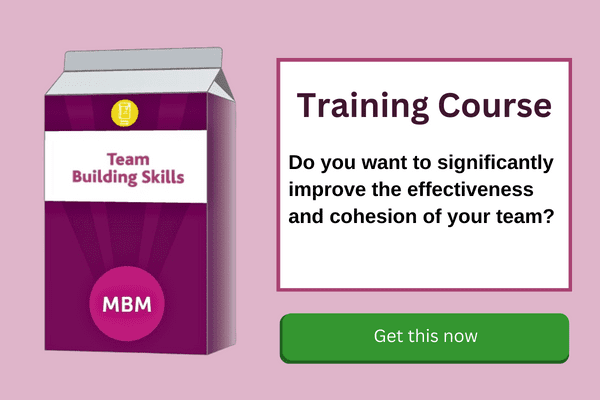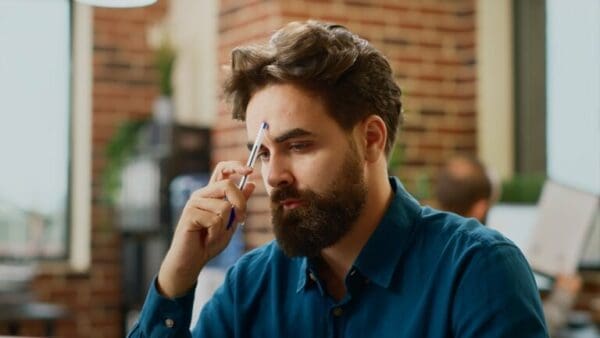Evidence-based Strategies for Optimal Workplace Collaboration
Did you know that research shows collaborative problem-solving leads to better outcomes and that teams are more likely to innovate when they have the support of a team behind them? In fact, Dr. Scott Tannenbaum, a researcher and president of the Group for Organisational Effectiveness, emphasises that teamwork is essential for a company’s success. Luckily, today’s focus is on teamwork skills.
As a manager, understanding the dynamics of teamwork is crucial, especially in today’s environment where teams can now be distributed geographically and composed of people from different countries and cultures. It is therefore important to develop and improve some skills that enhance workplace collaboration. Especially because during these times, most teams are working remotely and their interactions are rather virtual than face-to-face.
But what do people mean by teamwork? They are not talking about only achieving goals, setting objectives, and solving problems. Teamwork is not only about work. It is also about collaboration, support, and team cohesion.
It is about the psychological factors involved in the process of working and being part of a team. The strength of a team comes not only from their productivity and performance but also from communicating well and sharing.
Teamwork is complex, but it is so rewarding. Especially if you manage to achieve the perfect workplace collaboration. To do this, you need to take on these seven teamwork skills:

1. Communication – the Glue That Holds a Team Together
Experts on communication from a paper writing service say that this is one of the most important skills people must take on. Effective communication stands as the bedrock of successful teamwork. It involves not only conveying ideas and opinions but also active listening and empathetic understanding.
As Laura Angers Maddox, NCC, LPC, a licensed professional counsellor, reviews in an article, communication is more than just exchanging information—it’s the very glue that holds a team together. It enables problem-solving, and decision-making, and fosters a sense of unity within the group. Teams that communicate adeptly foster an environment of mutual support, preventing conflicts and ensuring seamless workflow.
Example: In a marketing team, clear communication ensures everyone understands the campaign objectives, target audience, and messaging strategy, leading to cohesive execution and optimal results.
Challenges:
- Misinterpretation of messages leads to misunderstandings.
- Language barriers in diverse teams.
- Difficulty in articulating thoughts or ideas concisely.
- A lack of feedback loops leads to communication breakdowns.
Strategies for Improvement:
- Foster open and transparent communication channels within the team.
- Practice active listening by paraphrasing and summarising others’ viewpoints.
- Provide constructive feedback and also encourage a culture of feedback exchange.
- Utilise visual aids, such as diagrams or charts, to enhance understanding.

Sticky Learning ® is 7 times more effective than 1-day training courses. Plus, you will get a Chain of Evidence proving your Return on Investment. Discover soft skills training that changes behaviours long term.

2. Conflict Management – One of the More Popular Teamwork Skills for Messy Times
Statistics reveal that 85% of US employees encounter some level of conflict at work, with managers dedicating around 15% of their time to resolving these issues. This underscores the significance of conflict management as a critical skill for team members. It’s not the presence of conflict that is detrimental, but rather the manner in which it is managed. The most important part is how you react and behave during a conflict.
Many people think that conflicts are bad and something to avoid. And indeed, some may turn out to be nasty. According to Harvard Business Review, high-performing teams don’t shy away from disagreements; instead, they view them as a chance to improve and strengthen their collaboration
But when engaging in teamwork, arising conflicts should be seen as a chance to develop skills. Something is wrong and this is the occasion to make it work better. Conflict management is an important teamwork skill each member should have.
Moreover, Rachel Morris, a GP and coach, suggests that addressing the unsaid is crucial in conflict resolution. By creating a safe space for team members to voice their concerns, teams can engage in constructive conflict, allowing problems to be addressed before they become toxic.
Example: When project timelines are at odds with resource availability, conflict resolution skills enable team members to negotiate priorities and allocate resources efficiently, mitigating delays and fostering team cohesion.
Challenges:
- Resistance to addressing conflicts leads to escalation.
- Power dynamics and personal biases influencing conflict resolution.
- Difficulty in finding mutually acceptable solutions.
- Emotional intensity hinders rational discussion.
Strategies for Improvement:
- Promote open dialogue and encourage team members to voice concerns early.
- Use conflict resolution techniques such as negotiation, compromise, or mediation.
- Focus on interests rather than positions to uncover underlying needs.
- Implement team-building activities to strengthen relationships and also prevent conflicts.
3. Active Listening – Many Think They Have This Skill, but They Don’t
Active listening is just as popular as communication. Unfortunately, many people think they know how to communicate and listen actively, but they still have a long way to go. Improving your active listening skills is essential when working in a collaborative environment.
Amy Gallo, a contributing editor at Harvard Business Review, explains that active listening involves a deep understanding of the speaker’s message, which includes reading body language and tone of voice, maintaining attention, and controlling emotional responses. This level of engagement is crucial in a collaborative environment where diverse viewpoints are the bedrock of innovation.

Teams need to constantly communicate and listen to others’ opinions, not to reply but to understand them. During team processes, such as brainstorming or setting goals, every team member needs to add their contribution. Every idea and opinion are important and this is why active listening is essential for a perfect collaboration.
Example: During brainstorming sessions, active listening ensures all team members feel heard and valued, leading to the generation of diverse ideas and creative solutions.
Challenges:
- Distractions and preconceived notions impede attentive listening.
- Jumping to conclusions without fully understanding the speaker’s message.
- Ineffective nonverbal cues hinder communication.
- Difficulty in balancing listening with speaking in group settings.
Strategies for Improvement:
- Practice mindfulness techniques to improve focus and concentration.
- Ask clarifying questions to ensure understanding of the speaker’s message.
- Use nonverbal cues such as nodding and maintaining eye contact to convey attentiveness.
- Reflect on and summarise the speaker’s message to demonstrate active engagement.
4. Leadership – A Must for Every Team
Every team needs a leader. And every team leader needs to motivate his team, listen to it, engage team members, and support them. According to the Chartered Institute of Personnel and Development (CIPD), effective teams are driven by leaders who provide a compelling direction, strong structure, and a supportive context. This aligns with the McKinsey report which states that there is a 1.9 times increased likelihood of having above-median financial performance when the top team works together towards a common vision.
As every team composition is different, every leader should adapt his leadership style. Effective leadership is an important teamwork skill in steering teams towards shared goals and inspiring peak performance. A skilled leader motivates team members, cultivates a shared vision, and provides support and also guidance through challenges, thereby fostering trust and commitment within the team.
One notable leadership technique is the Transformational Leadership style, developed by James MacGregor Burns. This approach involves inspiring team members to transcend their own self-interests for the sake of the team and organisation, and it’s particularly effective in fostering engagement and achieving high performance.
Example: A project manager adept at adaptive leadership empowers team members to take ownership of tasks, fosters a culture of accountability, and facilitates collaboration across departments, ensuring project milestones are met efficiently.
Challenges:
- Balancing task-oriented and people-oriented leadership styles.
- Managing conflicts and resolving team dynamics.
- Adapting leadership approaches to diverse team members’ needs.
- Building trust and credibility as a leader.
Strategies for Improvement:
- Develop emotional intelligence to understand and manage interpersonal relationships.
- Provide clear direction and set achievable goals for the team.
- Delegate tasks effectively and empower team members to take ownership.
- Seek feedback from team members and adapt leadership style based on their needs.
5. Time Management – Because Time Waits on No One
According to a study on time management by Dissertation Help, to achieve perfect workplace collaboration, you need one of the most important skills: time management. A team is made of different members who come from different cultures. They have different working styles, so making them complete each other might be a challenge.

Time management is important because it helps you organise your time and tasks effectively. By prioritising tasks, minimising distractions, and adhering to deadlines, teams ensure efficient utilisation of resources and mitigate the risk of project delays.
Example: In a software development team, effective time management ensures that coding tasks are allocated based on individual strengths and deadlines, enabling timely delivery of high-quality software products.
Challenges:
- Overcommitting and spreading oneself too thin.
- Procrastination and poor task prioritisation lead to missed deadlines.
- Interruptions and distractions disrupt workflow.
- Difficulty in estimating time accurately for tasks.
Strategies for Improvement:
- Use time management techniques such as the Pomodoro Technique or the Eisenhower Matrix.
- Break down larger tasks into smaller, manageable chunks.
- Set realistic deadlines and allocate time for unexpected delays.
- Limit multitasking and focus on one task at a time to improve productivity.
6. Problem Solving – It’s More Active Than Passive
Problem-solving is indeed a critical skill for any team aiming for seamless collaboration. As Rebecca Knight, a journalist with expertise in workplace dynamics, suggests, teams should not just identify problems but also actively engage in finding solutions. She recommends being a role model in problem-solving and creating a culture that encourages creative thinking and also solution-oriented discussions.
Problems are good because they put our skills to the test. They force us to take a new perspective and consider a fresher point of view. Knowing how to analyse a problem and find solutions is essential, as many people tend to run away from them hoping that they will dissipate or someone else will solve those problems. Problem-solving skills, along with other teamwork skills, allow team members to focus rather on the solution than on the problem.
Example: When faced with unexpected technical glitches during a product launch, a team with strong problem-solving skills collaborates to diagnose the root cause, implement corrective measures, and ensure a seamless customer experience.
Challenges:
- Difficulty in defining the root cause of a problem.
- Lack of consensus on problem-solving approaches within the team.
- Resistance to change or innovative solutions.
- Time constraints and pressure to find quick fixes.
Strategies for Improvement:
- Utilise problem-solving frameworks such as the “5 Whys” or SWOT analysis.
- Encourage brainstorming and idea generation to explore diverse solutions.
- Foster a culture of experimentation and risk-taking to promote innovation.
- Collaborate with team members to leverage collective expertise and insights.
7. Critical Thinking – Working With Different Perspectives to Make It All Work
Critical thinking is just as important as any other teamwork skill. When working in a team, you interact with your colleagues and each of them has a different perspective. Some people might fail to consider a new approach and prefer to follow the old path.
Alison Reynolds and David Lewis from the London Business School emphasise that teams with cognitive diversity solve problems faster. They argue that critical thinking is not just about problem-solving; it’s about fostering an environment where different perspectives are valued and explored.

But sometimes, thinking critically about an event, problem or project helps you find the best solutions. Critical thinking implies analysing similar past situations, listening actively to what other team members want to say, and examining all problem sides. Critical thinking encourages a more objective and fresher approach to problems, bugs, or team issues.
Example: In a research team, critical thinking skills enable members to evaluate experimental data, identify trends, and draw meaningful conclusions, leading to groundbreaking discoveries and scientific advancements.
Challenges:
- Confirmation bias influencing decision-making.
- Difficulty in distinguishing between factual information and opinions.
- Relying on intuition or gut feelings rather than logical reasoning.
- Groupthink stifles independent thinking and creativity.
Strategies for Improvement:
- Develop information literacy skills to assess the credibility of sources.
- Practice reflective thinking and challenge assumptions and preconceptions.
- Engage in debates or discussions to explore different viewpoints.
- Seek feedback from peers or mentors to validate reasoning and conclusions.
How to Navigate Remote Work Challenges with Effective Teamwork Skills?
In the realm of remote work, effective teamwork is paramount. Overcoming communication barriers and fostering unity are key. Jeff Gothelf, author and coach, advises setting clear boundaries to avoid overworking, which is a common challenge in remote settings. Establishing clear communication channels and protocols is essential for timely and transparent information exchange.
Regular video conferences and virtual meetings are crucial for maintaining face-to-face interactions. As noted by Melanie Pinola of Zapier, these interactions build rapport and help overcome the loneliness that can come with remote work. Leveraging collaboration tools like project management platforms, instant messaging apps, and virtual whiteboards is also vital for seamless collaboration and document sharing.
A technique to consider is the FSNPA model developed by Bruce Tuckman, which outlines the stages that teams typically go through as they evolve from a collection of individuals to a cohesive unit:
- Forming: Team members come together, establish goals, and define their roles.
- Storming: Conflicts arise as team members adjust to each other’s work and communication styles.
- Norming: The team overcomes initial challenges and starts to work more harmoniously.
- Performing: The team reaches optimal functioning, effectively working towards their goals.
- Adjourning: The project or task is completed, and the team may disband or reflect on their achievements.
Assessing Teamwork Skills: How to Measure Effectiveness in Organisations?

To gauge the effectiveness of teamwork in organisations, a blend of assessment tools, metrics, and performance indicators is essential. Eduardo Salas, a renowned expert on team performance, suggests that accurate measurement tools are necessary to determine a team’s strengths and weaknesses, taking into account the dynamic nature of teams. Utilising methods such as peer evaluations, self-assessments, and 360-degree feedback can offer comprehensive perspectives on individual and team performance.
For assessing teamwork skills specifically, one well-regarded technique is the Team Diagnostic Survey (TDS), developed by Richard Hackman and Ruth Wageman. The TDS is a research-based measure that assesses the conditions affecting team effectiveness. It looks at five key areas: team design, team context, team processes, team effectiveness, and team learning.
Conclusion on Teamwork Skills
In conclusion, mastering teamwork skills is essential for achieving seamless workplace collaboration. Effective communication, active listening, and conflict resolution are vital for fostering a supportive team environment. By prioritising time management, critical thinking, and mediation, teams can enhance their performance and overcome challenges. Embracing these seven teamwork skills ensures smoother collaboration and contributes to a fulfilling team experience.
Action: For even more useful content on team building, check out our ultimate guide on Team Building Skills.
Updated: April 2024 by Farah Yasser Salama




